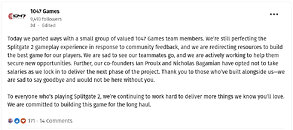
RISC-V Ecosystem Gets More Standardization as Ubuntu Drops Non-Compliant CPUs
Canonical, the company behind Ubuntu, has announced that its next-generation release will require RISC‑V processors to meet the newly ratified RVA23 profile. This specification, approved back in April, includes full support for Vector Instructions 1.0 and a Hypervisor extension. As Laurine Kirk, security researcher at Google, notes, by setting this higher baseline, Ubuntu 26.04 will no longer run on roughly 90% of existing RISC-V single-board computers, including the popular Raspberry Pi-style boards, unless their hardware is upgraded. Canonical's move puts it in step with Google and Microsoft, both of which have already targeted RVA23 for their RISC‑V builds. This change will drive manufacturers to ship more secure, future-proof silicon, helping to guard against exploits like GhostWrite, a memory-access vulnerability discovered last year in T-Head's XuanTie C910 CPUs.
We discussed RISC-V ecosystem fragmentation with Andrea Gallo, then the CTO and now the CEO of the RISC-V Foundation, regarding the fragmentation within the RISC-V ecosystem. "If you want to claim that you are RISC-V compatible, then there's an architecture compatibility test suite that verifies that you are complying with the ISA. We run the same tests on a golden reference model and compare the signatures of the tests to ensure alignment with the specification." He added that "We just ratified the RVA23 Profile. The newly ratified RVA23 Profile is a major release for the RISC-V software ecosystem and will help accelerate widespread implementation among toolchains and operating systems." For anyone who wants to ship a working RISC-V processor, be it data center or mobile, the RVA23 profile is the one that guarantees no fragmentation and compatibility.
We discussed RISC-V ecosystem fragmentation with Andrea Gallo, then the CTO and now the CEO of the RISC-V Foundation, regarding the fragmentation within the RISC-V ecosystem. "If you want to claim that you are RISC-V compatible, then there's an architecture compatibility test suite that verifies that you are complying with the ISA. We run the same tests on a golden reference model and compare the signatures of the tests to ensure alignment with the specification." He added that "We just ratified the RVA23 Profile. The newly ratified RVA23 Profile is a major release for the RISC-V software ecosystem and will help accelerate widespread implementation among toolchains and operating systems." For anyone who wants to ship a working RISC-V processor, be it data center or mobile, the RVA23 profile is the one that guarantees no fragmentation and compatibility.


































































